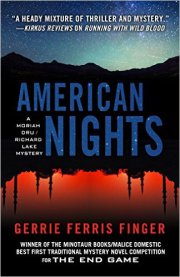I live in the city now, and they're still a loud nuisance that steals the voices of insects, animals and other birds. At night, my word, they'll keep you awake mimicking crickets or bob whites (quail). Baaaa -- (upnote) -- White! Said over and over, it gets on one's last nerve, as we say in the South.
About the title, Sparknotes writes:
 |
| US Fish and Wildlife Photo |
Okay. I never thought of mockingbirds as innocents, in fact they are rather crafty. Why not To Kill a Bluebird? Now that songbird, with its distinctive beloved voice, is welcome in every garden as a voracious feeder of pesky insects and are a joy to see and listen to on a lovely summer morning.
 |
| US Fish and Wildlife Photo |
I realize I'm picking on an icon, a Pulitzer Prize winner and a sensitive author. I read the book when I was a teenager -- in school, of course -- and again about ten years ago to see if my first twinges of boredom reoccurred. It's still slow-moving like the South of the period in which it was set. (Though, by today's literary fiction standards, and length, it moves along.) And, having experienced the attitudes in the book, I appreciate the value of it in today's society. For me, the shrill of the mockingbird's voices resonates with that which is stolen rather than that which is innocent.
Told from a child's point of view, we meet the Finches (bird irony here?) one summer. Scout, her brother, Jem, and their friend, Dill, plot a way to aggravate the town weirdo, Boo Radley. Into this "innocence" the alledged rape of Mayella Ewell, the white daughter of the town drunk, occurs. That crime hardly phases the kids. But then Scout's father, Atticus Finch, is hired to defend the alleged rapist, Tom Robinson, a black man; and soon the children are witness to the town's deplorable attitudes -- racism, classism and the valiant struggle for justice against ignorance.
Harper Lee was born Nelle Harper Lee in Monroeville, Alabama on April 28, 1926, Lee wrote one novel and vowed to never write another. She helped research a book by her life-long friend, Truman Capote: In Cold Blood. However, she will publish a book that she wrote before her famous Mockingbird, titled, Go Set a Watchman, to be released in July, 2015.
As quoted in To Kill a Mockingbird, "People generally see what they look for, and hear what they listen for."
So true.
Happy Reading (whatever your preferences)
Gerrie Ferris Finger
Running with Wild Blood - 2015
http://amzn.to/1HZxd1A










